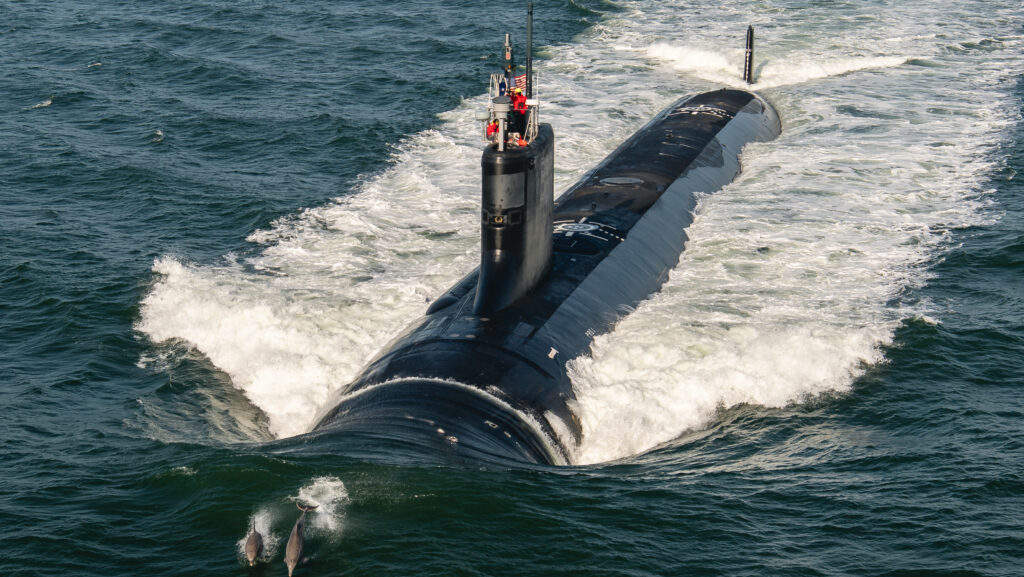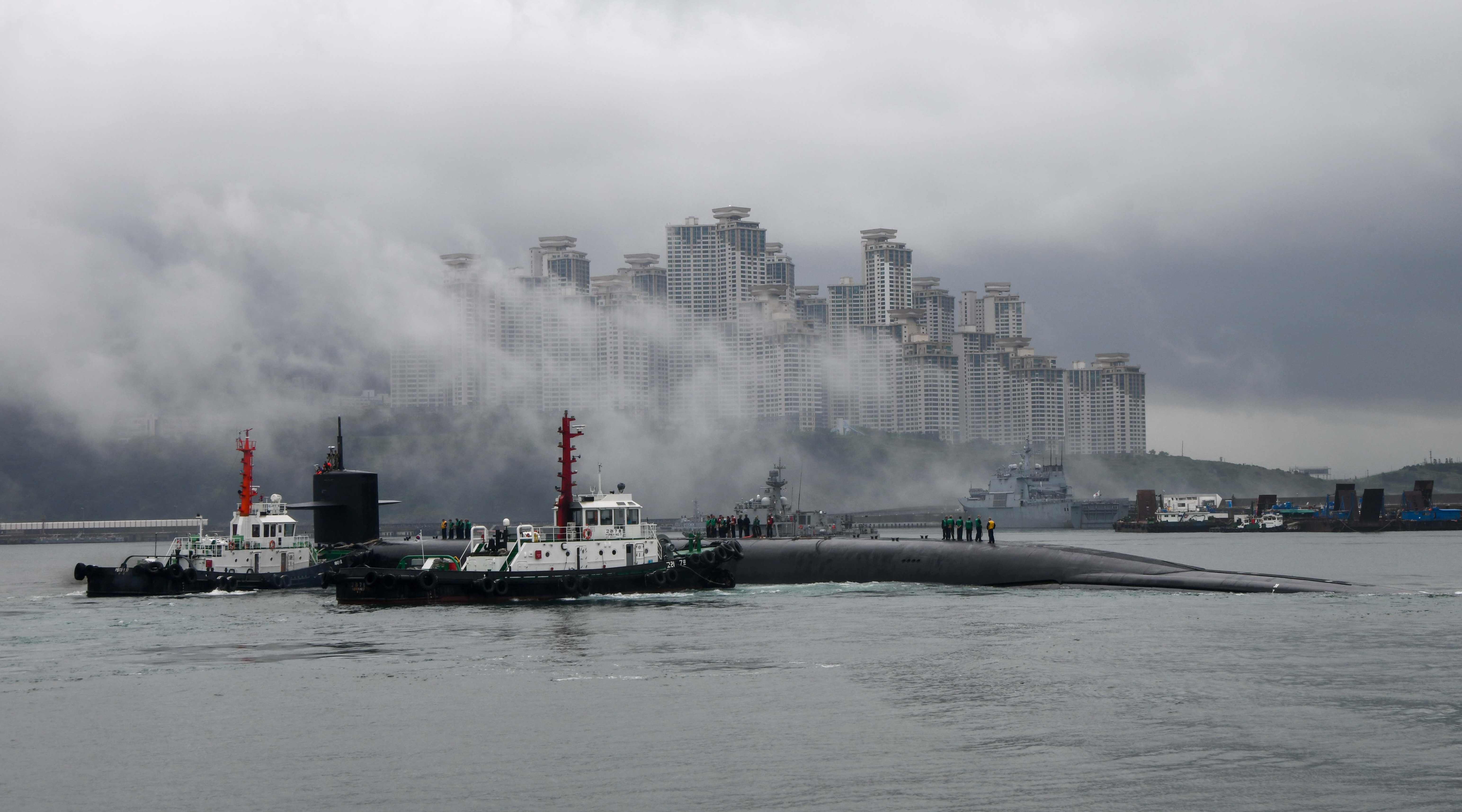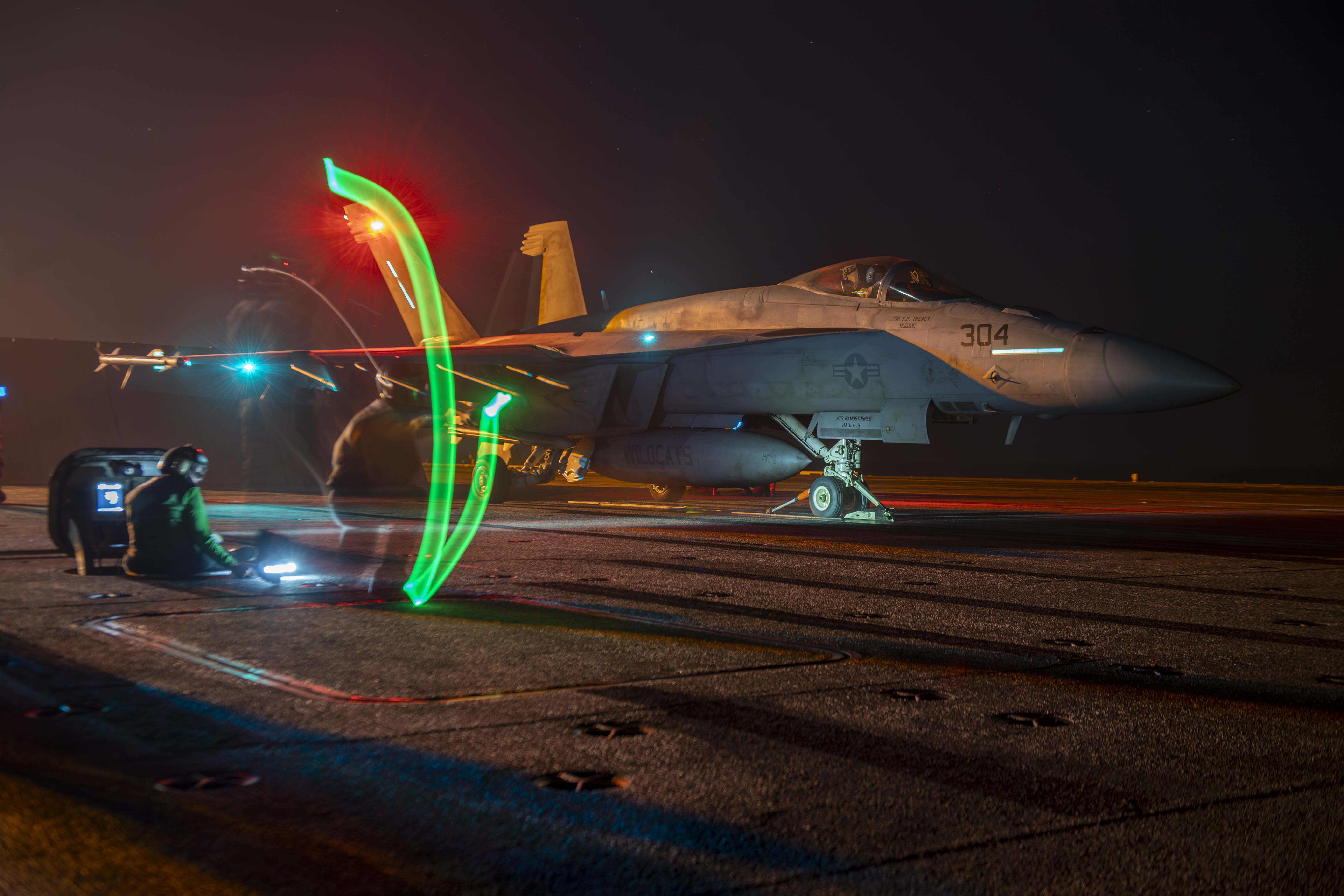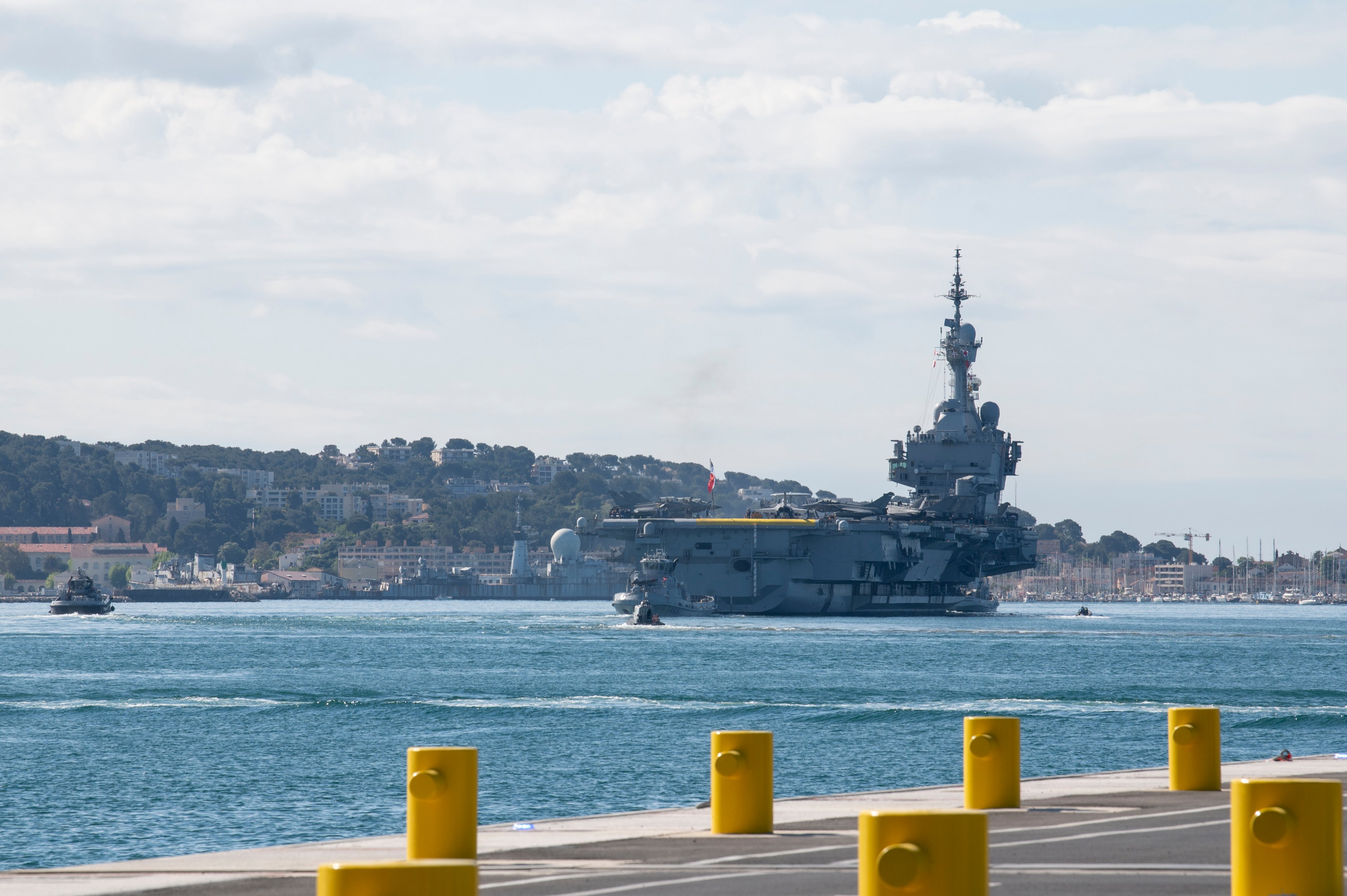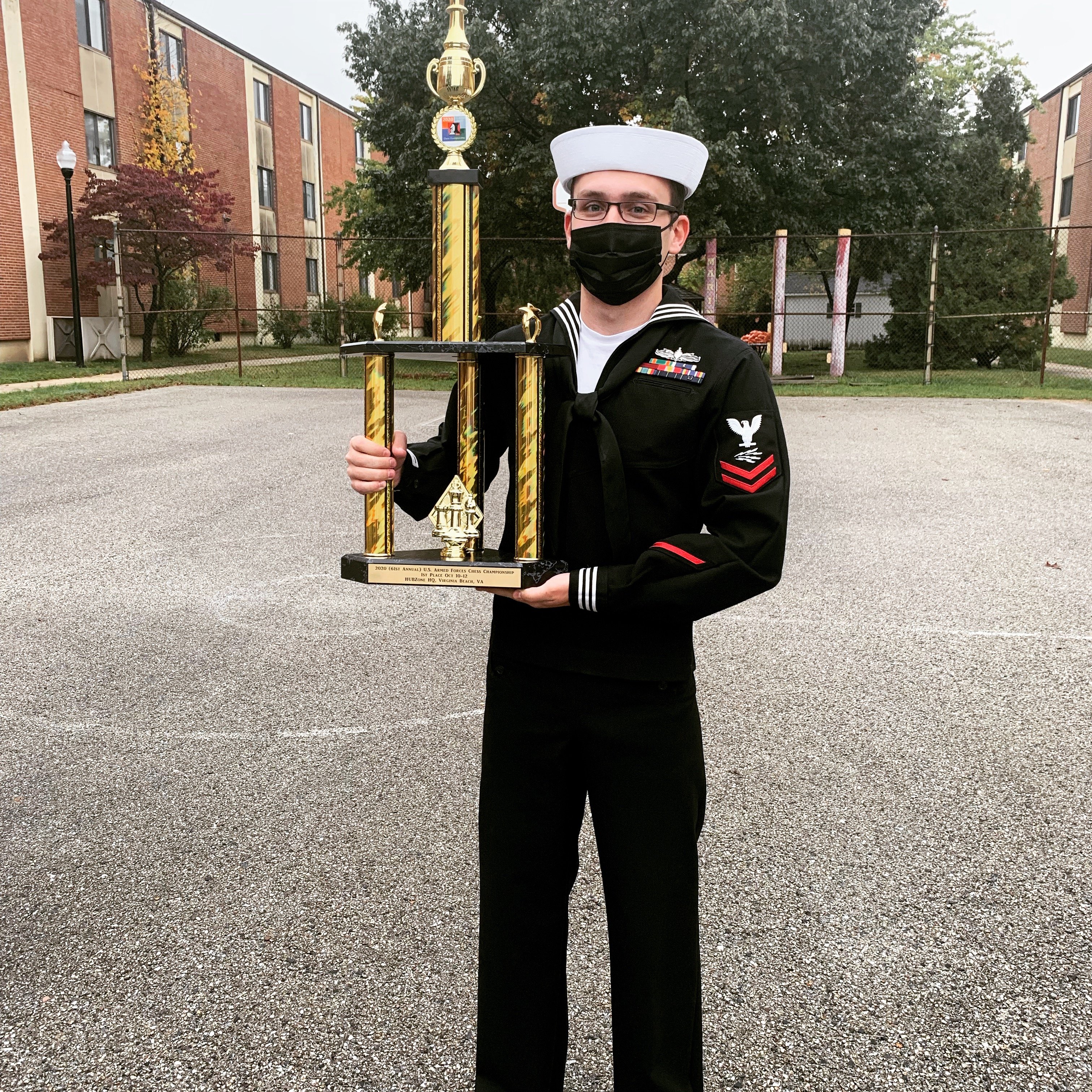
When Information Systems Technician 2nd Class Andrew Peraino was a Navy recruit, tucked away in his eyeglasses case was a set of paper pieces he had fashioned into a miniature chess board set.
In rare instances of downtime at Naval Training Center Great Lakes, Ill., Peraino would carefully unfold the checkered paper board, organize the small squares marked as individual chess pieces and challenge his mind in ways basic training just didn’t.
“All the other sailors who were in my division were very interested in using it,” he said. “It never got taken away. I still have it in my closet.”
The two-dimensional chess set allowed him to practice and develop skills in a strategy game he had been playing seriously just a few years after an impromptu, bold challenge against a high school swim team mate who’d amassed chess trophies.
Peraino joined the fleet as an IT, deployed overseas and set out to become one of the world’s top chess players. He first competed against other military service members at the 2016 Armed Forces Chess Championship.
Last month, he took the top trophy at the 2020 Armed Forces Chess Championship held in Virginia Beach, Va. He defeated the reigning champion, Air Force Lt. Eigen Wang – a top-rated military player and national master – and led the Navy team to victory.
While he started with a respectable 2098 rating, Peraino’s fourth-round win bumped him to a personal-high of 2144, as recognized by FIDE, the International Chess Federation, and put him closer to 2200, the first level of national “master.” Ratings points are determined by games that are certified and imputed by U.S. Chess Federation tournament directors, and players gain or lose points depending on victory and the rating and class of their opponents. Wang began the match at 2369, “so he must have taken a big hit from the loss against me,” Peraino said.
This month, after a summer move from San Diego, Calif., to Fort Meade, Md., Peraino began a series of weekly online Zoom classes aimed at helping novice chess players and midshipmen at the U.S. Naval Academy in Annapolis, Md.
“At the U.S. Armed Forces Open, mids and cadets play against each other,” he said. “I’d been wanting to teach them for quite some time.” Peraino wants to see them defeat the U.S. Military Academy at West Point, N.Y., adding “I really do want them to be stronger and take on those Army cadets at the next Open.”
His former commanding officer from USS John Finn (DDG-113), Capt. Courtney Minetree, now assigned to the Naval Academy, chimed in during his Nov. 23 Zoom lesson attended by some 40 mids, veterans and young players.
Minetree, he said, “supported me quite a bit” with his chess playing and chess tournaments, including the annual NATO chess championship where many of the world’s top military chess players compete. Unfortunately, Peraino missed his spot on the 2019 U.S. team at the tournament in Germany because, he said, the subsequent skipper denied him leave for the competition. The U.S. team finished fourth, led by national master Navy Lt. Chase Watters.
The COVID-19 pandemic canceled the 2020 NATO chess championship in Belgium and still threatens 2021 play set for Estonia. But Peraino, now assigned to Cryptologic Warfare Activity 67, Cryptologic Warfare Group 6, hopes to be able to compete next year or at least defend his U.S. national win. “I want to be a part of the team that gets the U.S. on the podium,” he said.
Like other Navy and military chess players, he competes at local, national and international tournaments on his own. A generation ago, chess was among handfuls of individual and team sports the military branches officially supported with teams funded through the Defense Department. But there hasn’t been an official Navy or command-sponsored chess teams for about eight years, since the end of inter-service play, so expenses are borne by players even with no-cost temporary additional duty orders.
Bold, Early Start
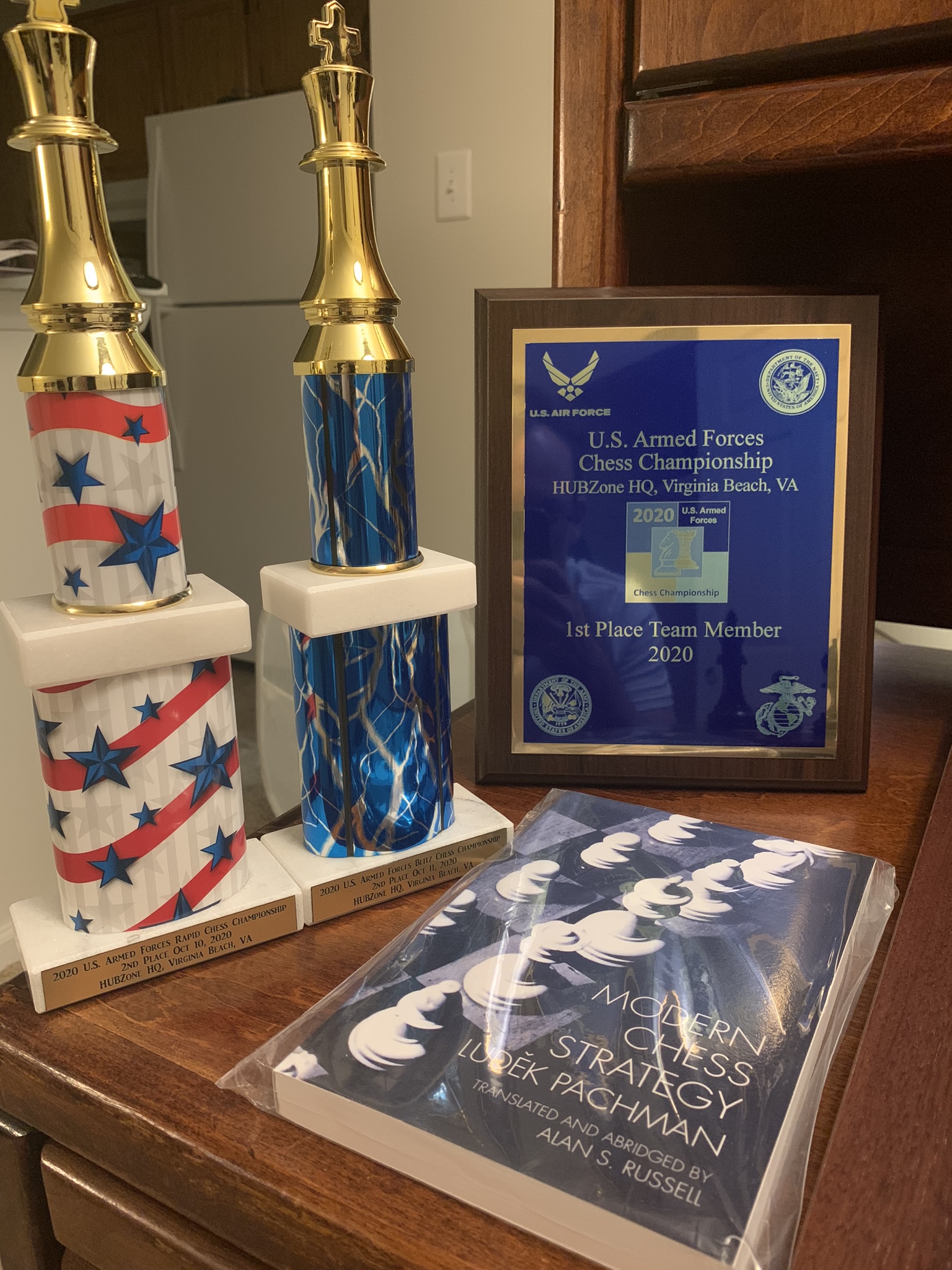
Peraino started playing chess 10 years ago, as a high school freshman. One day, at a carb-loading party at a friend’s house ahead of a swim meet at Eureka High School in Mo., he inquired about shelves of chess trophies. The friend “was happy to tell me that they belong to him,” he recalled. “As it turns out, he had gotten to like eighth place at super nationals when he was seven years old. He was quite an exceptional player for his age at the time… He still is a very, very strong player. And me being curious, I challenged him to a game.”
“Little did he know that I had played on Chess.com every now and then, just to play the game because I enjoyed it,” he said. His online rating was 1050, very amateur, and “needless to say, he did not take me serious when we first played.”
“He absolutely crushed me, like worse than I’d ever lost before,” he said, noting “I didn’t see the monstrous gap that was between us at that time.” Still, the friend told him “I was better than most of the amateurs he had played” and later invited him to the Missouri state championship.
“It was really there where I felt like I really belonged, for a change,” Peraino said. Eventually, he helped his high school win its first chess team trophy.
Peraino said he didn’t have a lot of talent when he started playing chess but credits his success with his desire to constantly learn and strive to get better.
“I think I’m a culmination for all the people that I’ve met and the experiences that I’ve made with them, and I’ve managed to combine them. … I’ve shaped all of them into my own play,” he said. “Drive and determination and studying the game. I truly believe if anyone puts their mind to it – to study upwards of two to three hours a day and genuinely strives to be stronger and that’s what they want – then they can become a chess master. I want to be a living, breathing proof of that some day.
“But I’m still 56 points [away from] making master.”
Online play sharpens his ability and tactics. “If your rating is under 2000, you have to constantly be doing tactics. There’s just so many patterns and ideas that you can learn just from doing puzzles,” he said. “I think the most important thing to do, when it comes to performing puzzles, is not trying to speed your way through them. You should definitely try to sit down for at least 10 to 15 minutes … on a particular problem. … Try your best to see what’s going on positions on your own accord.”
Above all, he said, for someone to be a good player, “they need to have an unrelenting drive to win. They definitely should be playing for wins and not draws in their games.”
“They should certainly do their best to cut out out any and all distractions that could be happening in their life,” he added. “You need to be able to keep a clear mind and not be thinking about anything else than the game.”
And that often isn’t easy. For Peraino, a big setback came after the end of a two-year personal relationship. “It was really difficult for me emotionally and mentally,” he said. He didn’t win a tournament for two years – until this year’s championship victory ended that drought.
“It was awful; I was in the biggest slump of my chess career and I was having a really difficult time getting out of it,” he said, thanks to a San Diego friend’s help and counsel. “It was hindering my performance when it came to chess.”
Mind Over Matter
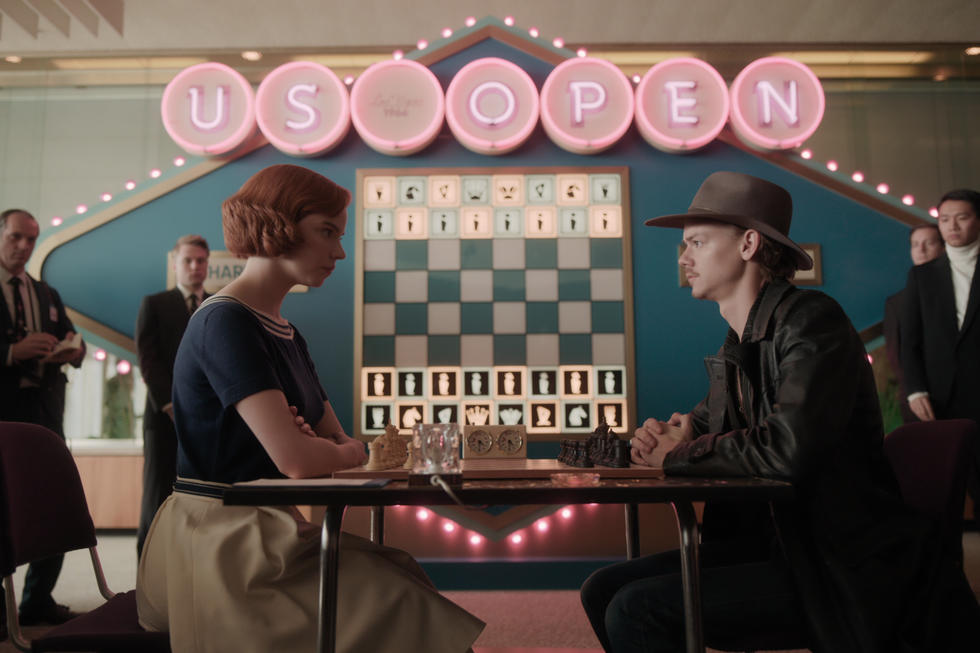
Chess, worldwide, has seen a resurgence, with its popularity fed by pandemic-driven stay-at-home orders and buoyed by popular shows like Netflix’s “The Queen’s Gambit,” driving chess board sets off shelves at stores and online warehouses. Online chess play remains popular, as well, providing a place to challenge amateurs and masters alike. It also has a separate rating system, but it’s considered to be less regarded due to its open, unverified play.
Peraino said he prefers to play chess face-to-face, in person. “I love playing over the board, as opposed to online,” he said. “Mostly, I have a very intimidating aura over the board.”
He said one veteran competitor, in a note to this year’s armed forces open tournament director, described his chess play as “dangerous… a tiger shark, an apex predator who’s entirely in his own element in the chessboard.”
“I’ve had people tell me they can just see it in my eyes, just a burning passion, just a fire that doesn’t go out and an insatiable appetite to win,” he added.
Peraino admits his style is more of offense, of going on the attack. It was a lesson impressed at the Nov. 23 Zoom lesson. Going on the attack, he said, “puts you in the driver’s seat and it gives you the initiative. So long as you are the one attacking and you are making your opponent respond, that puts you in a great position.”
“In chess,” he added, “you need to be proactive, in order to have a chance at winning.”
Big Win
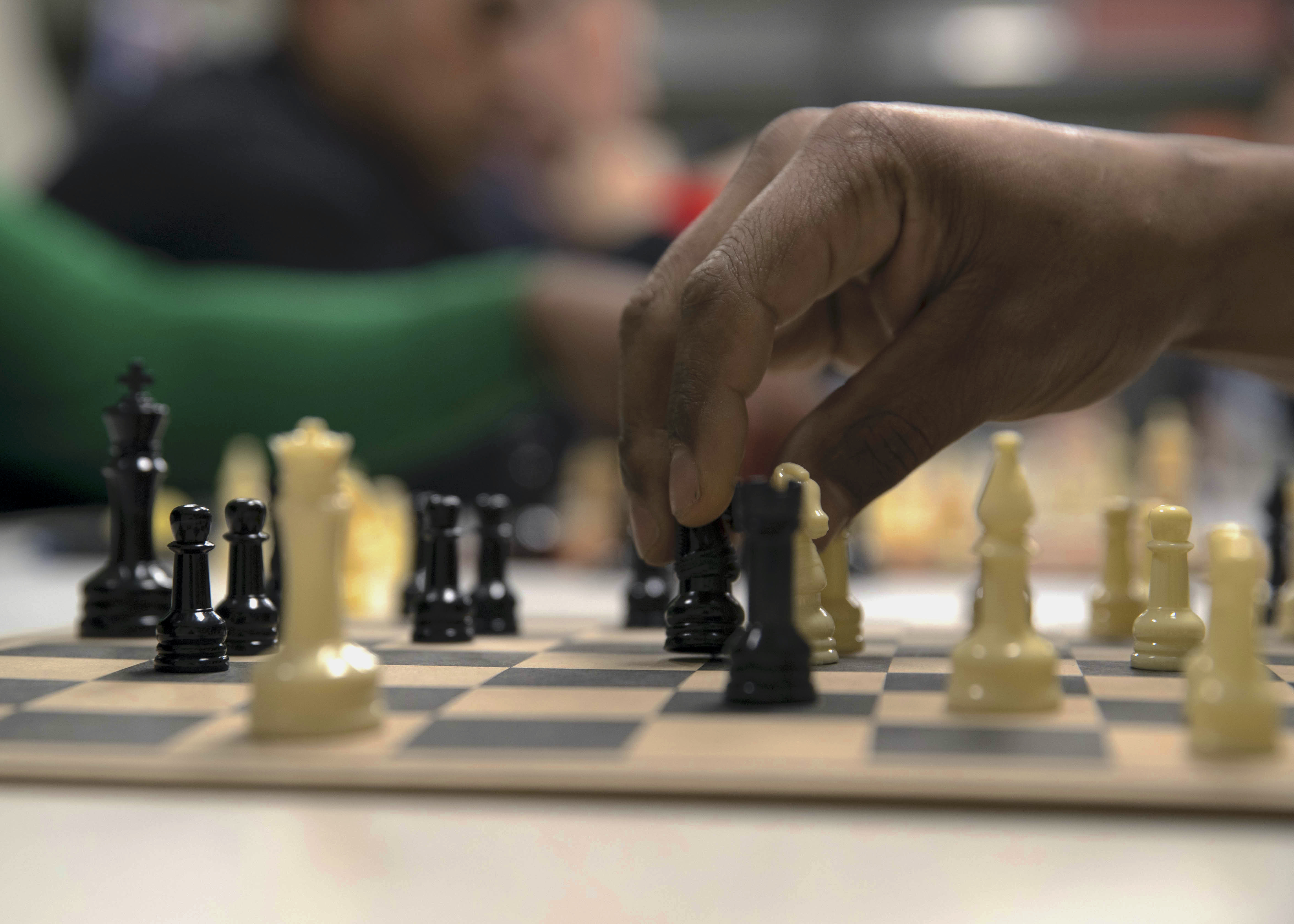
At the 2020 championships, Peraino held his own against opponents in the first three matches, the last of which lasted some four hours before the fourth-round match against Wang.
When he sat down, before the first game, “I told him that I had been looking forward to this for a long time,” he said. He had known Wang socially through chess. “I don’t think he’s ever really underestimated my strength,” he added, “but he and I hadn’t really played over the board, so I didn’t know what was going to happen.”
Peraino, playing Black to Wang’s White, soon went on the offensive. “I don’t want to be rude, but it was certainly a crush,” he said. “I just told myself I’m not going to be afraid of Mr. Wang, despite him being number two in NATO and rated so high.”
“From start to finish in that game, I felt I was better,” he added. Wang “played positional against me, which I was fine with, because I’m more a tactical player.”


